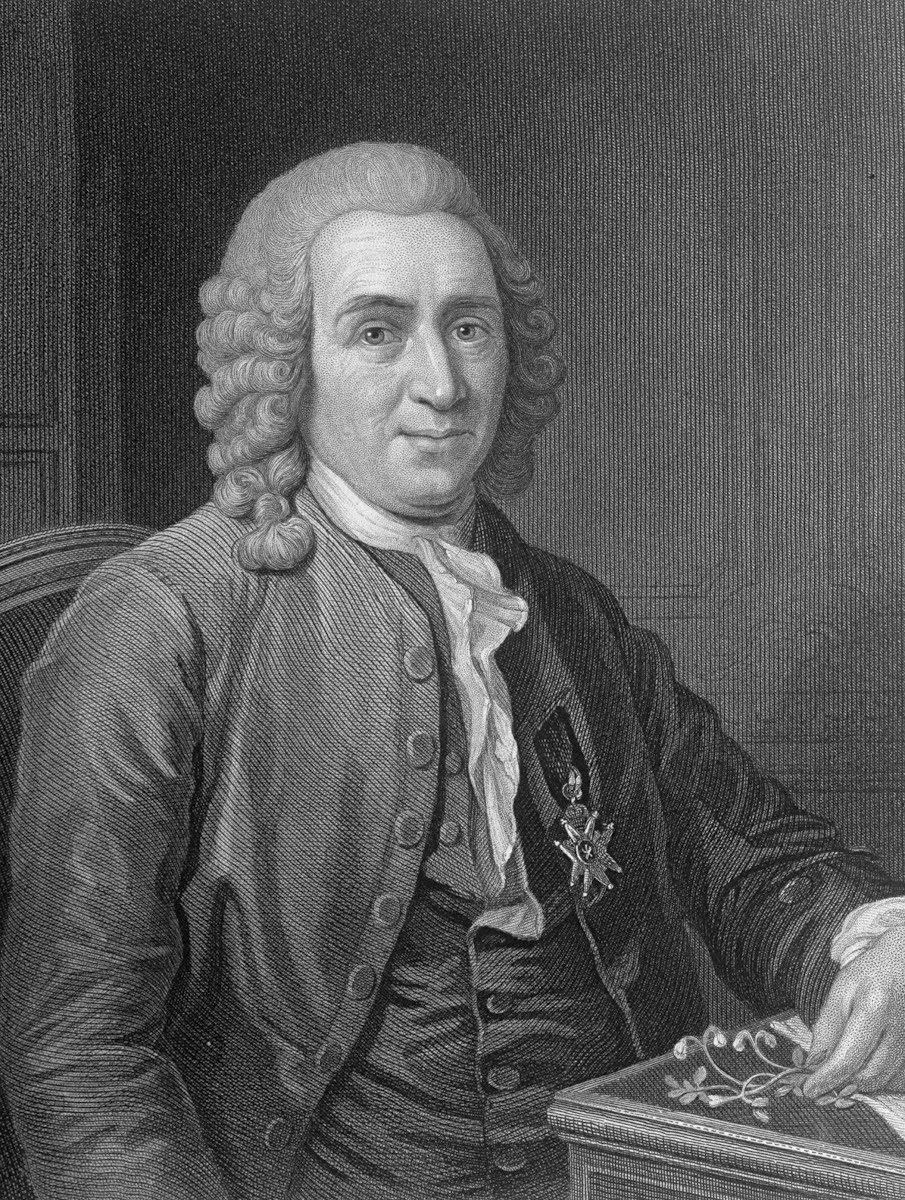Home > Sections > Famous Scientists > Carl Linnaeus
Carl Linnaeus
Life Details
Born: May 23rd 1707. Died: January 10th 1778.
Introduction
Carl Linnaeus was a scientist whose work on taxonomy, the identifying, naming and classification of organisms, was groundbreaking.
Early Years
He was the oldest of five siblings, and was born in Råshult, in Sweden. His father was a minister and keen gardener. Carl was often taken to the garden with his father to study plants and would be taught about botany (the study of plants). By age five, Carl had his own garden, and continued to learn about plants and how they work.
By the time Linnaeus attended school, he was learning all the Latin names of plants, which were long and descriptive. He was later encouraged by his tutor, Johan Stensson Rothman, to study medicine. In 1728, and after a year studying medicine at the University of Lund, Carl Linnaeus transferred to Uppsala University, hoping the course would be better. It was here that he was found by Olof Celcius (uncle of Anders Celcius - inventor of the Celcius thermometer), who offered him a place to stay while he studied, and allowed him to use his library. He wrote an essay on the classification of plants based on the sexual parts
Between 1732 and 1735, Linnaeus travelled all around Sweden, listing and collecting information on the country's natural resources. He encouraged others to use his binomial system of nonmenclature. It wasn't until 1735 that he quickly took his medical degree in the University of Harderwijk in Holland, and was able to publish some of his many scientific papers and books.
Later Life
Linnaeus married Sara Lisa Moraea and became a professor of botany in the Uppsala University in 1741. He was a charismatic teacher, and always had students around him. He would send the most gifted ones on voyages of exploration to find new plants and animals. He would then name them using the binomial system of nomenclature he had come up with (which we still use today).
In 1747, Linnaeus was appointed chief royal physician and he was knighted in 1748. Through this, he took the name Carl von Lynné. He suffered from illness upon retirement, and after a few years, died on January 10th 1778.
His work on taxonomy was second-to-none, and was also a pioneer in the study field of ecology. His studies, scientific papers and books all lead toward what we know today - the binomial system of nomenclature is still a format used today.





